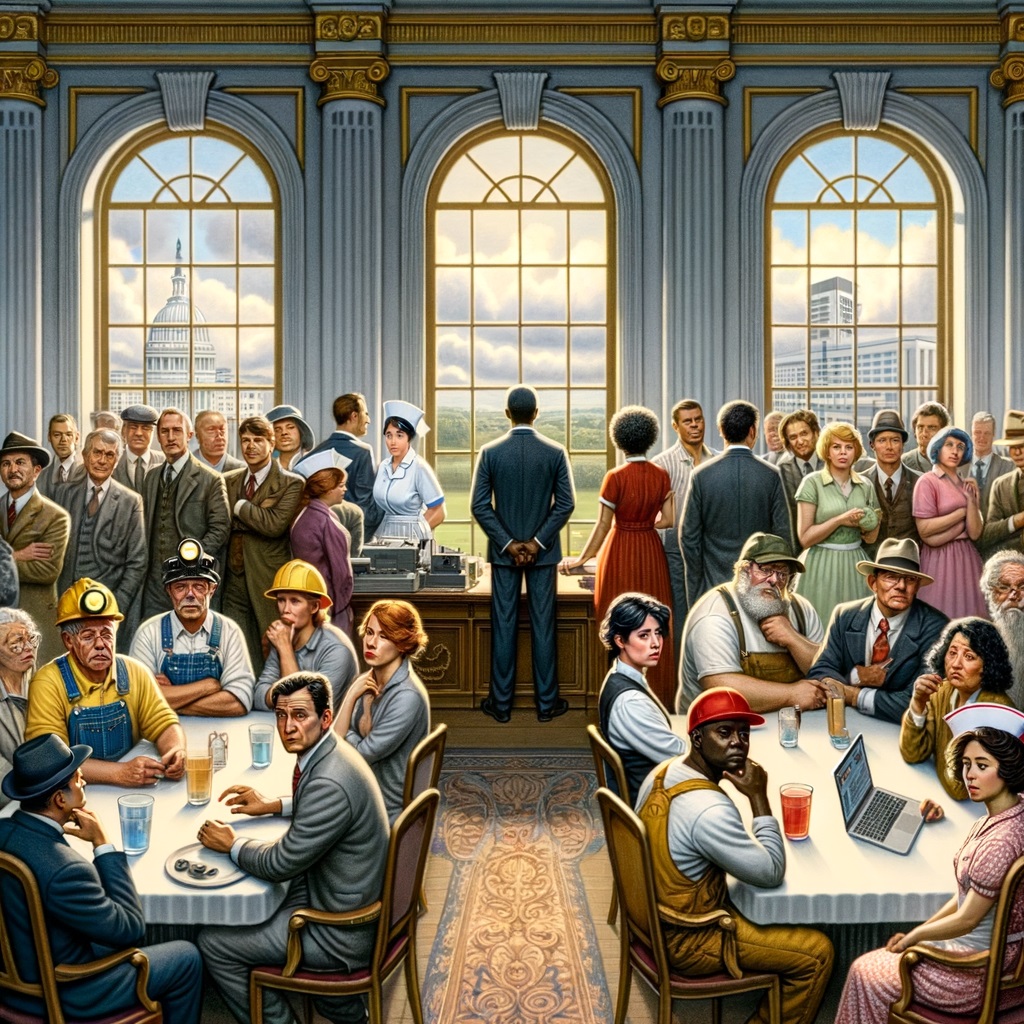In recent years, the Democratic Party has found itself increasingly disconnected from the realities faced by everyday Americans. This disconnect has been fueled by a variety of factors, including the influence of media, the rise of activism within the party, and a growing sense of elitism among party leaders. As a result, the party has experienced significant consequences, including heightened polarization and a string of electoral setbacks. Lets take a closer look at what has influenced, and the consequences of the failure to connect with the working class voters, shedding light on the Democratic Party in it’s failed attempts to reconnect with the American people.
Influences on Democratic Party’s Disconnect, Media, Activism, and Elitism
The media plays a significant role in shaping public opinion, and its influence on the Democratic Party cannot be underestimated. In recent years, many media outlets have displayed a clear bias towards progressive ideals, often favoring left-leaning candidates and policies. This bias has led to a distorted representation of the American people’s diverse opinions and concerns within the Democratic Party. As a result, party leaders may find themselves out of touch with the real issues that affect everyday citizens.
The rise of activism within the Democratic Party has contributed to the party’s disconnect from reality. While activism can be a powerful force for change, it also has the potential to create an echo chamber within the party. Activists often hold more extreme views than the average voter, and their influence can push the party further to the left, alienating more moderate voters in the process. This shift towards ideological purity can further disconnect the party from the concerns and priorities of the wider electorate.
Another significant influence on the Democratic Party’s disconnect from reality is the growing sense of elitism among party leaders. There is a perception that many Democratic politicians are out of touch with the everyday struggles of working-class Americans. This elitism can be seen in the party’s policies and rhetoric, which often prioritize the concerns of the affluent and well-educated over those of the working class. This disconnect has resulted in a loss of support from traditionally Democratic-leaning communities, leading to electoral setbacks for the party.
Consequences of Democratic Party’s Disconnect, Polarization and Electoral Setbacks
The Democratic Party’s disconnect from reality has had far-reaching consequences, most notably the heightened polarization of American politics. As the party has moved further to the left, it has become increasingly difficult for Democrats to find common ground with their own party, Republicans and more moderate voters. This polarization has fueled political gridlock and a breakdown of support within the Democrat base and bipartisan cooperation, preventing effective governance and exacerbating societal divisions.
The Democratic Party’s disconnect has resulted in a series of electoral setbacks. In recent years, the party has struggled to win over voters in key swing states and secure majorities in Congress. The disconnect between party leaders and the concerns of everyday Americans has left many voters feeling unheard and unrepresented. This frustration has led to a decline in support for the Democratic Party, as voters seek alternatives that they believe better align with their priorities and values.
The Democratic Party’s disconnect from reality and failure to represent the American middle class working people is a pressing issue that requires careful examination and consideration. Understanding the influences that have contributed to this disconnect, such as media bias, activist influence, and elitism, is essential to understand. Because recognizing these consequences has not occurred, including heightened polarization and electoral setbacks, the Democratic Party’s ability to reconnect with the American people and regain their trust is rapidly moving past the point of no return. Failing to address these issues head-on, the party lacks the ability to rebuild a stable and more inclusive connection with the diverse electorate they aim to represent.
